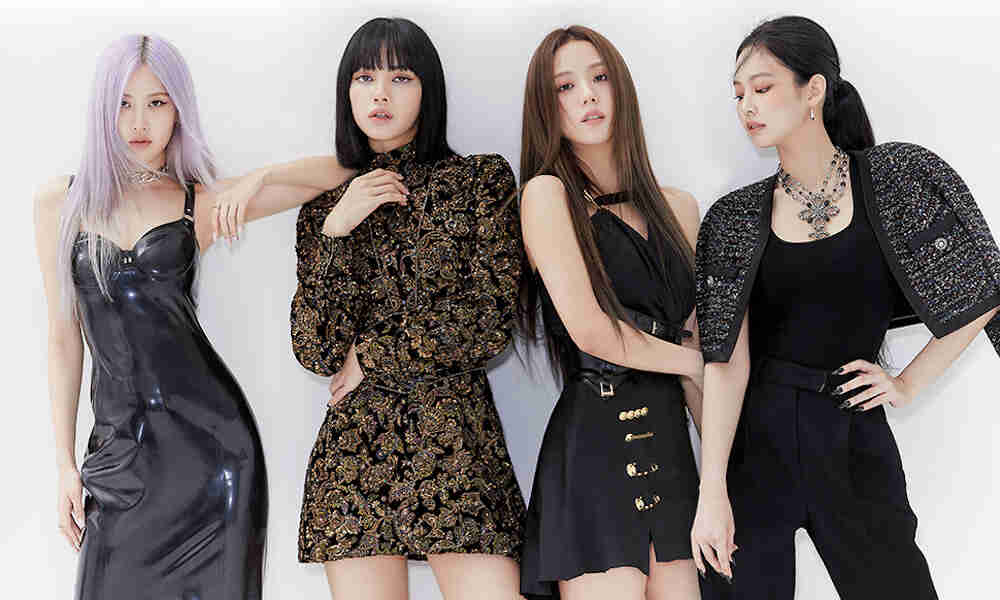The surge in interest in Korean culture has made K-pop popular in the West, but festival lineups in the UK have yet to reflect this.
BLACKPINK made history about four years ago. In 2019, the powerful quartet became the first female K-pop act to perform on Coachella’s Sahara stage (and proved they deserved such a title). At the time, their booking felt like a watershed event, a sign that the tide was shifting – interest in K-pop was quickly expanding in the west, but it was still flying under the radar nearly a decade after PSY’s ‘Gangnam Style’ became a global hit.
Things have changed now that BLACKPINK has been invited back to the Californian desert to assume their spot as headliners. Korean culture is a powerful force right now, with Korean creatives driving everything from music to film and television, fashion and beauty to food. According to Duolingo, Korean will be the second-fastest growing language on the app by 2021.
More and more K-pop acts are appearing on festival lineups in the United States, alongside their western counterparts. With his successful Lollapalooza performance last year, BTS rapper J-hope became the first South Korean artist to headline a main stage at a US event, while Tomorrow X Together became the first K-pop artist to appear at the Chicago festival the day before. SEVENTEEN took over LAC3 in December, alongside Snoop Dogg, Lil Baby, Maluma, and others, and MONSTA X visited Las Vegas for Life Is Beautiful in 2019. When a fictitious version of this year’s Coachella lineup surfaced online last week, it wasn’t surprising that boyband CIX – popular but not one of the biggest artists to make an effect outside of Korea – could have been hired by the festival (alas, the rumour was too good to be true).
K-popularity pop’s in the West isn’t limited to the United States, despite what you might think based on UK festival lineups. Whereas Coachella has been proactive and open to accepting Korean musicians’ growing appeal, Britain has lagged far behind. So far, just one K-pop act has been announced to perform in British fields this summer, with BLACKPINK making history once again at London’s BST Hyde Park, whereas recent festival seasons have been woefully short in the K-pop department. Even Glastonbury, a utopia of various sounds, genres, and cultures, has yet to make the transition.
It’s not like these talents aren’t in demand here. Huge names like BTS and BLACKPINK have sold out several nights at major venues in London in minutes, while a simple scan of the city’s upcoming performances shows concerts by CIX, Kang Daniel, ATEEZ, The Rose, and others, with the latter two either sold out or close to it. Since the country reopened, there has been an increase in K-pop club nights in the UK, which appear to be packed with fans on social media, while BTS, TWICE, and BLACKPINK have all hit the difficult-to-penetrate UK charts. The V&A is now hosting an exhibition on the emergence of Korean culture.
Of course, there are a variety of rational reasons why K-pop may yet fail to break into the UK festival scene – visa issues, funding constraints, scheduling difficulties, and artists themselves declining offers – that will go unnoticed by the general public. But, with interest in K-culture unlikely to wane anytime soon and K-pop on the rise, British festival organisers must take a closer look at the scene to avoid being left behind by the rest of the world. Leaving these artists isolated at K-pop-only events may provide enjoyable opportunities to get a healthy dosage of the culture, but if that’s all the UK has to offer, it’s not in the spirit of current music consumption.
We often boast confidently in the twenty-first century about how there are no barriers to music anymore – tribalism is dead, and everyone can listen to whatever varied combination of genres they like. Coachella’s 2023 lineup exemplifies this, with reggaetón singer Bad Bunny, New York punks Blondie, forward-thinking British pop from Charli XCX, experimental mind-benders from Björk, jungle reviver Nia Archives, and, of course, BLACKPINK’s irresistible K-pop. British festivals aren’t exactly lacking in diversity, but it’s interesting that we haven’t been quite as willing to incorporate K-pop into our festive melting pot thus far.
However, there is some hope for the foreseeable future. Reading and Leeds asked supporters last year to see who they wanted to see at the events in 2023. J-hope, fresh off his Lollapalooza act, was among the options. At the very least, it implies that major festival organisers are beginning to sit up and take notice of K-role pop’s on their lineups; fingers crossed, such considerations become reality very soon.

